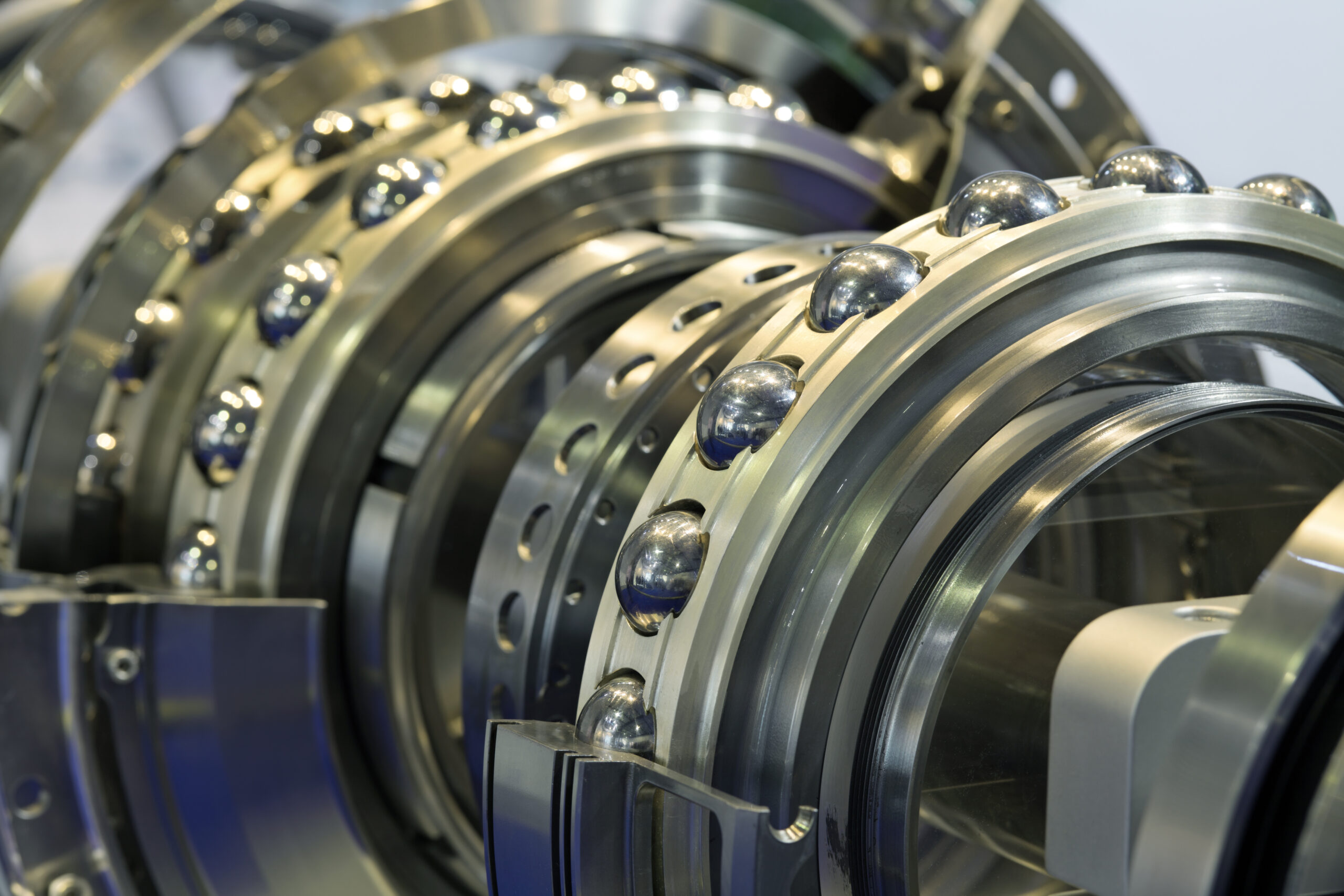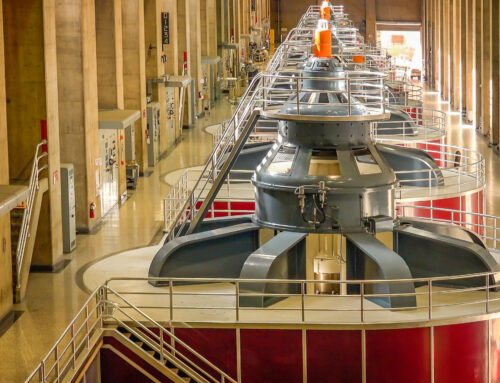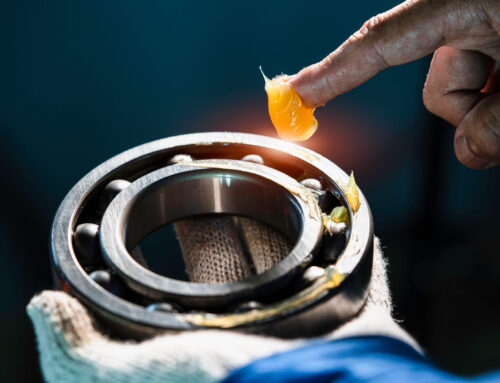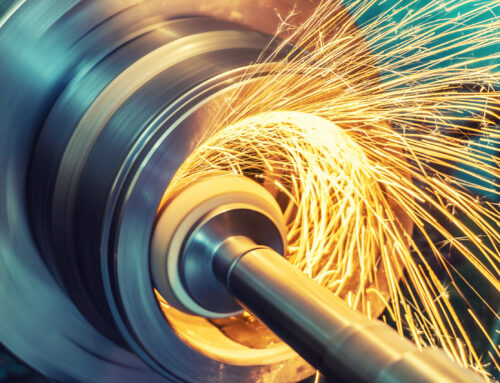
What is ASTM B23 babbitt?
ASTM B23 babbitt is a standardized family of bearing alloys used for hydrodynamic or journal bearings. These alloys form a soft, low friction surface that protects shafts and supports stable oil film operation. In the ASTM B23 standard you will find two main families: tin-based babbitt and lead-based babbitt. Each family includes several grades with defined chemical ranges and mechanical properties. Choosing the right alloy depends on your duty cycle, load, speed, lubrication quality, and temperature. In rotating equipment like pumps, turbines, and motors, the correct selection can add years of reliable service to your bearings and reduce unplanned downtime.
Fusion Babbitting is a trusted partner for selecting and applying ASTM B23 babbitt. Since 1988, our Milwaukee team has repaired, rebabbitted, and manufactured bearings that meet or exceed OEM specifications. We help customers match alloy performance to real-world duty cycles in aluminum mills, power plants, paper mills, shipyards, and more.
Tin-based vs lead-based babbitt: how they differ
Composition and microstructure
Tin-based babbitt uses a tin matrix with hard intermetallic particles that resist wear and carry load. These alloys deliver high fatigue strength, good corrosion resistance, and excellent compatibility with clean, well-filtered oils. Lead-based babbitt uses a lead matrix with antimony and other elements for strength. These alloys offer very good embeddability and conformability, which helps them tolerate dirt, minor misalignment, and shock. Both families bond well to steel or bronze shells when cast correctly. Fusion Babbitting uses centrifugal casting to ensure a dense, uniform microstructure and strong bond integrity across all ASTM B23 grades.
Performance traits that influence selection
- Fatigue strength: Tin-based ASTM B23 babbitt typically provides higher fatigue strength for high-speed and high-load bearings.
- Embeddability and conformability: Lead-based alloys excel at trapping small particles and accommodating slight shaft imperfections.
- Corrosion resistance: Tin-based alloys resist corrosion from water and many process fluids better than most lead-based grades.
- Thermal conductivity: Tin-based babbitt usually carries heat away more effectively, which stabilizes oil film temperature.
- Cost and availability: Lead-based babbitt is often more economical, which can be attractive for moderate duty or large-volume repairs.
- Environmental and process requirements: Some facilities prefer tin-based alloys for environmental or process compatibility reasons.
Why duty cycle matters for ASTM B23 babbitt
Duty cycle describes how your machine runs over time. It includes continuous or intermittent operation, average load, peak load, start-stop frequency, and exposure to shock, vibration, and contaminants. In hydrodynamic bearings, stable oil film lubrication protects metal surfaces. When a duty cycle drives the bearing beyond its film strength, the surface experiences boundary contact, heat, and fatigue. Matching alloy to duty cycle helps your bearing survive these harsh moments.
Continuous high-speed duty
Steam turbines, large compressors, and high-speed motors run at high surface speeds with sustained loads. Tin-based ASTM B23 babbitt is the usual choice for these applications because it handles higher fatigue stresses, sheds heat efficiently, and resists corrosion. Grades commonly applied in high-speed service are within the tin-based family and are selected to balance hardness and toughness. Fusion Babbitting supports turbine and generator shops with tin-based babbitt selection, precise bearing geometry, and oil groove design that promotes stable film formation during startup and steady-state operation.
Intermittent and moderate duty
General industrial pumps and many electric motors see moderate loads, periodic starts and stops, and variable speed. Tin-based alloys perform very well in clean systems with reliable filtration. Lead-based ASTM B23 babbitt can also be a strong fit where vibration, dirt, or slight misalignment are concerns. The choice depends on your oil cleanliness, alignment accuracy, and expected peaks in load. Fusion Babbitting evaluates your actual operating data and helps you choose a grade that balances performance, risk, and cost.
Shock, contamination, and abrasive service
Slurry pumps, crushers, and some paper stock pumps experience solid contamination, shock loads, and frequent boundary lubrication. Lead-based babbitt’s embeddability is valuable here. These alloys trap small particles to protect the shaft and bearing surface. When oil viscosity rises during cold starts or when dirt is present, a lead-based grade can extend life by reducing scoring and seizure risk. For especially dirty service, Fusion Babbitting can pair the selected ASTM B23 babbitt with improved groove patterns, filtration upgrades, and surface finishes that resist wiping during transient events.
Low speed, heavy load
Hydro units, large gearboxes, and certain thrust pads operate under high loads at lower speeds. Both tin-based and lead-based ASTM B23 babbitt can succeed here, depending on the exact PV conditions, lubrication method, and environment. Tin-based alloys bring higher fatigue resistance where unit loads are high. Lead-based alloys help when misalignment or contamination are more likely. Fusion Babbitting engineers review your shaft material, surface finish, housing stiffness, and cooling plan to recommend the best combination.
Application-specific guidance for pumps, turbines, and motors
Pumps
- Clean process centrifugal pumps: Tin-based ASTM B23 babbitt is often preferred for continuous duty with clean oil. It provides low friction, good heat transfer, and strong fatigue resistance. Maintain tight filtration and proper cooling for best results.
- Paper stock, chemical, and refinery pumps: Tin-based alloys perform well with clean, neutral lubricants. If contamination or chemical attack is likely, a corrosion resistant tin-based grade offers extra margin. When solids cannot be avoided, a lead-based grade with high embeddability can be considered.
- Slurry and dredge pumps: Lead-based ASTM B23 babbitt is commonly selected to tolerate grit and shock. Combine the alloy choice with frequent oil changes and fine filtration to extend service life.
- Vertical turbine pumps: These units benefit from tin-based babbitt for thrust and guide bearings when water intrusion and high speed are concerns. Tin-based alloys resist water-related corrosion better than many lead alloys.
Turbines
- Steam turbines: Tin-based ASTM B23 babbitt is the go-to for high speed rotors, where fatigue strength and thermal conductivity stabilize the oil film. Proper groove geometry and journal finish are essential.
- Gas turbines and turbo-compressors: Tin-based grades are favored due to high operating speeds and temperatures. Fusion Babbitting provides tight control of bond integrity and bore geometry during rebabbitting to protect against wipe and wipe-recovery issues.
- Hydro turbines: Tin-based alloys are typically selected for corrosion resistance and fatigue strength. Where misalignment or transient loads occur, careful clearance design and high tin grades provide added security.
Electric motors and generators
- Large AC motors and generators: Tin-based ASTM B23 babbitt is widely used for its stability under continuous operation. Start-stop cycles are supported when the oil system delivers reliable lift at startup.
- Medium industrial motors: Choice depends on cleanliness and alignment. Tin-based alloys suit clean, steady service. Lead-based alloys can help with vibration or dirt.
- Small motors and legacy equipment: Lead-based babbitt is sometimes specified for cost and embeddability. Fusion Babbitting can reverse engineer obsolete parts to match original performance or upgrade to a modern tin-based alternative when appropriate.
Specs snapshot for ASTM B23 babbitt
ASTM B23 defines composition ranges, mechanical properties, and quality requirements for tin-based and lead-based bearing alloys. While exact numbers vary by grade and heat treatment, the following traits guide selection and design. Always verify your specific grade and OEM limits before finalizing a choice.
- Hardness: Tin-based babbitt usually measures higher on common hardness scales than comparable lead-based grades, offering better fatigue resistance in high-speed service. Lead-based grades are softer, which supports embeddability and conformability.
- Operating temperature: Tin-based alloys tolerate higher operating temperatures and thermal cycling. Lead-based alloys are used within lower to moderate temperature ranges.
- Fatigue behavior: Tin-based ASTM B23 babbitt handles higher dynamic loads and speed, making it a strong fit for turbines and high-speed motors.
- Corrosion resistance: Tin-based alloys resist water and many process oils better than most lead-based grades.
- Thermal conductivity: Tin-based babbitt typically has higher thermal conductivity, helping to dissipate heat from the bearing surface.
- PV and speed limits: PV capability depends on oil film stability, clearance, and geometry. Tin-based babbitt supports higher PV values at proper lubrication, while lead-based alloys serve moderate PV with enhanced debris tolerance.
Pros and cons at a glance
Tin-based ASTM B23 babbitt
- Pros: High fatigue strength, excellent corrosion resistance, strong thermal conductivity, low friction under stable film, proven in high-speed service
- Cons: Higher material cost, slightly less tolerant of contamination and misalignment than lead-based options
Lead-based ASTM B23 babbitt
- Pros: Superior embeddability, good conformability, cost-effective for moderate duty, helpful in dirty or shock-prone environments
- Cons: Lower fatigue strength than tin-based alloys, lower corrosion resistance, narrower high-temperature operating window
How Fusion Babbitting helps you choose the right alloy
Fusion Babbitting Co., Inc. has specialized in Babbitt bearing services since 1988. From our Milwaukee facility at 4540 W. Burnham St., we support customers nationwide with 24-hour emergency service. Our team rebabbitts, repairs, rebuilds, reverse engineers, and manufactures bearings that meet or exceed OEM specifications. We work with all major ASTM B23 babbitt grades and guide you to the best fit for your duty cycle and budget.
Our process for reliable bearings
- Inspection and failure analysis: We evaluate wear patterns, bond condition, oil grooves, and shaft finishes to understand root causes.
- Reverse engineering: For obsolete or undocumented parts, we produce detailed drawings and material callouts to restore function.
- Alloy selection: We match tin-based or lead-based ASTM B23 babbitt to your loads, speeds, lubrication system, and environment.
- Centrifugal casting: We cast using certified babbitt and controlled processes to secure a strong, consistent bond to the shell.
- Machining and finishing: We machine bores, thrust faces, and grooves to precise tolerances with proper surface finishes.
- Quality checks: Bond integrity, dimensional verification, and surface inspection ensure reliability before shipment.
- Support and emergency service: We provide installation guidance and rapid turnaround when downtime is costly.
Capabilities and materials
- Repair, rebabbitting, and rebuilding to OEM or better
- Centrifugal casting for strong bond strength
- Arc flame spray application to restore worn components
- General fabrication and machining up to 120 inches in diameter and length
- New manufacturing for custom and OEM bearings
- Reverse engineering with detailed drawings and documentation
Industries and equipment we serve
- Aluminum mills, cement and chemical plants, fossil and nuclear plants
- Hydro and pump storage, marine repair, mines and steel mills
- Motor repair shops, paper mills, shipyards, crushed stone producers
- Electric motors, hydro power systems, pumps, and turbines
Installation and operating tips for long bearing life
- Control alignment: Misalignment increases edge loading and fatigue. Check housings, shafts, and baseplates before installation.
- Set correct clearance: Follow OEM or Fusion Babbitting recommendations for diametral clearance and taper to stabilize the oil film.
- Optimize surface finish: Smooth, round journals reduce heat and promote hydrodynamic lift. Confirm finish and roundness during outages.
- Use high-quality lubrication: Choose the right viscosity, maintain temperature control, and implement fine filtration.
- Manage startups: Pre-lube or lift oil systems limit boundary contact. Warm up equipment to reduce viscosity spikes on cold starts.
- Watch for contamination: Install breathers, seals, and filtration upgrades in dusty or wet environments.
- Monitor condition: Track temperature, vibration, and oil analysis. Early detection prevents cascading damage.
- Plan re-babbitting cycles: Schedule inspections based on duty severity. Rebabbitting before catastrophic failure reduces total cost.
Frequently asked questions
Can I replace a lead-based bearing with tin-based ASTM B23 babbitt?
Often yes, but not always. Tin-based babbitt may improve fatigue life and corrosion resistance, but it can be less forgiving of contamination and misalignment. If your system has clean oil, proper alignment, and reliable lift, tin-based is a strong upgrade. If your environment is dirty or shock-prone, keeping a lead-based grade may be wiser. Fusion Babbitting reviews your duty cycle, geometry, and oil system to recommend a safe changeover plan.
How do I know if the babbitt failed due to fatigue or corrosion?
Fatigue failures often show beach marks, subsurface cracking, and localized wipe at the loaded zone. Corrosion or chemical attack can cause pitting, softening, or bond degradation, especially near oil grooves or water ingress points. Scoring and debris embedment suggest contamination or poor filtration. Fusion Babbitting can analyze wear patterns and advise corrective actions, including alloy changes, oil upgrades, and geometry adjustments.
What standards and tests does Fusion Babbitting follow?
We work to ASTM B23 for babbitt materials and apply strict process controls for casting and machining. Our quality program includes bond verification, dimensional checks, and surface finish confirmation. When required, we perform non-destructive examinations and provide documentation that aligns with OEM and industry expectations. The result is a bearing that installs cleanly and performs as designed.
Choosing the right alloy for your duty cycle
For turbines and other high-speed continuous machines, tin-based ASTM B23 babbitt is usually the best choice. For moderate speed or contaminated environments, lead-based babbitt offers resilience and value. Many pump and motor applications fall between these extremes, where your oil cleanliness, alignment, and start-stop frequency drive the decision. Fusion Babbitting helps you weigh these factors and select a grade that delivers uptime, protects your shaft, and meets budget goals.
About Fusion Babbitting and how to contact us
Fusion Babbitting Co., Inc. has over 40 years of combined expertise in Babbitt bearing repair, rebabbitting, rebuilding, reverse engineering, and custom manufacturing. From pumps and motors to turbines and hydro units, we keep critical assets running. We are located at 4540 W. Burnham St., Milwaukee, WI 53219, and we support clients nationwide with 24-hour emergency services. Call 414.645.5800 or 800.613.5118, or email sales@fusionbabbitting.com for rapid assistance, a quote, or help choosing the right ASTM B23 babbitt for your duty cycle.
If you need a fast turnaround or a dependable partner to extend bearing life, contact Fusion Babbitting today. We will compare tin and lead babbitt options, provide a clear recommendation for your pumps, turbines, and motors, and deliver precision workmanship that meets or exceeds OEM standards.








